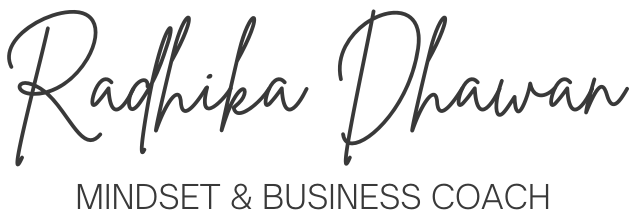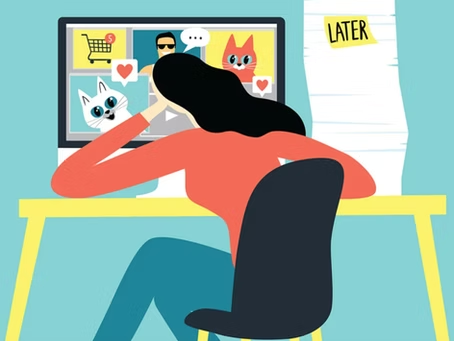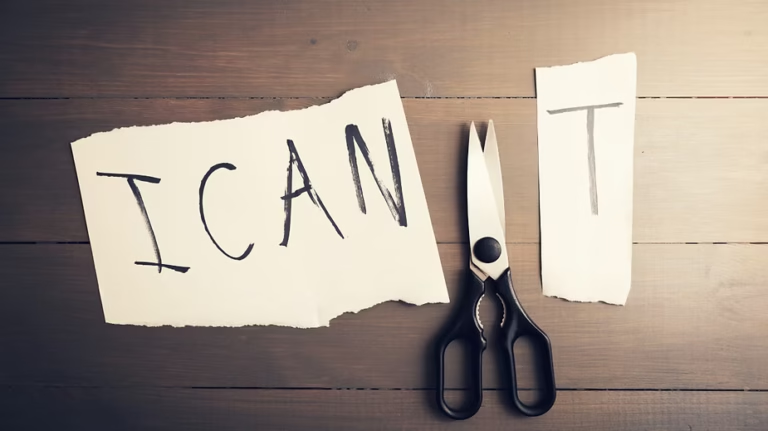You are NOT a procrastinator
Confession: I have this habit of procrastinating things I KNOW I should do NOW.
For example, getting this blog started. I’ve been meaning to for months now.
When I decided to actually roll it out, I did it in the proper way; I broke things down – the objective, the topics I could cover, the format, what platform to use, the frequency etc. You get my drift. My planning was on point.
But then it came to the execution and I procrastinated…HARD.
SO I thought why not bite the bullet and talk about that instead.
"Procrastination is essentially the intentional and habitual postponement of an important task that should be done now."
I know you might be thinking, “Why should I learn from you something you just confessed at being terrible at.”
I want to start by saying, Procrastination happens.

Whether conscious or subconscious, we all have certain activities that we put off, de-prioritise, and push away until they either fall off of our lists or we’re forced to complete them.
We make them the problem of “future me”
The Loop
We create a loop in our head that justifies and reinforces pushing things for later. We believe that we are procrastinators. And until this loop is broken your brain will always believe that you “perform best under pressure”.
Unlearning behaviours that have been around for a while means pattern disruption. It takes developing new perspectives, determining what is realistic, compromising on your old beliefs, and facing challenging emotions.
All this sounds like a lot
OK. Baby step.
Before you get to the unlearning part I want you to realise, recognise and register these 2 things:
1) “Procrastination is a habit, NOT an identity”.
Think about a fitness enthusiast aiming to lead a healthier lifestyle. Instead of occasional intense workouts or sporadic balanced meals, consistency in daily exercise, coupled with a regular balanced diet, leads to sustainable health improvements.
I’m going to say it one more time – Procrastination is a habit, NOT an identity.
Next time instead of saying, “I’m such a procrastinator,” You might say, “I am procrastinating on this task.”
Then you stop making procrastination part of your identity, you can allow yourself up to behave differently.
And the good news is that a habit is both replaceable and buildable.
-
- you can replace a bad habit with a helpful one
- like a muscle you can build a good habit by consistent repetition
Remember, these simple steps are not about making things easy, but about making them achievable. There will be stumbles, setbacks, and moments of doubt. But by embracing these simple yet powerful principles – taking the first step, prioritising progress, and showing up consistently – you equip yourself with the tools to navigate the journey and ultimately reach your full potential.
Bonus Tip: As an ICF-certified coach, I strongly recommend seeking guidance and support. A coach can help you clarify your goals, develop action plans, and stay accountable on your journey.
Now, go forth, take action, and conquer your goals! Remember, the simple steps, consistently taken, lead to extraordinary results.
Let me know your takeaways in the comments below!
2) When you procrastinate you are not necessarily putting off the task itself but are avoiding the emotion and feeling attached to it.
Usually the root cause is one or all of these: fear of failure, fear of being judged, lack of discipline, feeling overwhelmed by the task at hand or just good old STRESS.
And the big one, procrastination all dressed up in high heels, pearls & a Chanel bag is PERFECTIONISM. This is a slippery slope.

"Progress over perfection is my motto."

Don’t judge yourself for certain tasks being hard or your process being imperfect. Just keep going. In time, the tasks that once loomed over you will be distant images in your rearview mirror.
Overcoming Procrastination
Spoiler Alert – you’re never going to feel like it.
"The first step is simply acknowledging that procrastination stems from habit."
Which means new, helpful habits will be needed, and these take time and commitment to develop.
Here are some techniques you can try the next time procrastination starts to show its ugly head.
- Getting started is the hardest part. Break the daunting task up into smaller action steps and start with one small step to avoid overwhelm hence building momentum and gradually working to completion.
- Set up a system of accountability, such as tracking your progress in a planner or app. Telling a friend or colleague about your goals and have them monitor it also helps greatly.
- Decide to spend only 20 minutes on the activity and be done after that. You will be shocked with how you achieve flow state and how long you go for. Most people find it very hard to just stop 20 minutes into the activity.
- Mel Robbins has a simple and excellent hack called the Five Second Rule. The moment an instinct to act on a goal, you must physically move within 5 seconds or your brain will kill it. When you count backwards 5…..4….3…2..1 you interrupt the habit loops that you have developed. And counting backwards requires focus, which activates the prefrontal cortex in your brain that helps you take action.
Remember, overcoming procrastination or any behavioural change takes time and effort.
Be patient with yourself and keep trying different strategies until you find what works best for you to smash that procrastination.
-
Lastly, don’t forget to celebrate your wins! However small the progress but if you managed to put one foot ahead of the other – celebrate it!
Everything it takes to achieve excellence, you already have within you!
I’m rooting for you!
XO


Was this helpful?
I’d love to hear your thoughts.
Leave a comment below and tell me what resonated and what techniques are you going to implement.
If procrastination is a challenge for you too, I can help!
Book a 30 minute Discovery Session where we can identify the challenges and gauge if we are a good fit for each other.



